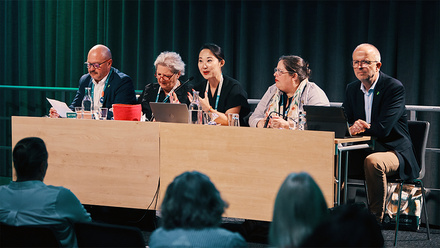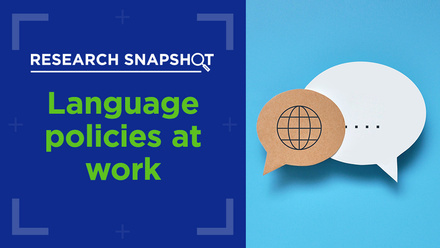Expanding our boundaries as scholar-practitioners

Continuing with Forum Week, we shift our focus to the growing role played by the scholar-practitioner. Those who both study internationalisation as an area of scholarship and practice it as professionals often find themselves with full agendas, but the benefits to both the scholar-practitioner and the field of internationalisation make it a worthwhile race against the clock.
In addition to being a director of CMEPIUS – a Slovene public institution that also acts as an Erasmus+ national agency – I am also a scholar of higher education. I came to this sector through a rather winding path: based on my mobility experiences, I started to work as a graduate student in electrical engineering many years ago in the field of vocational education and training at a then newly-established national agency. Later on, I advanced my academic skills by obtaining my PhD in Social Sciences.
Through the development of my career, I have dug increasingly deeper into the many scholarly questions surrounding higher education. In considering what the future of internationalisation research holds, we must also consider the growing role of other such scholar-practitioners in our field.
What other ways of thinking and doing are possible?
Even though the research is typically thought of as being conducted by regular tenured faculty, we practitioners also need to get involved, as the phenomenon of internationalisation is moving away from the periphery and towards the centre of higher education. According to Charles McClintock in the Encyclopedia of distributed learning, the scholar-practitioner is “an ideal of professional excellence grounded in theory and research, informed by experimental knowledge, and motivated by personal values, political commitments, and ethical conduct”.
We have to move from being mere bystanders to being active agents in the process
In addition to international officers working in higher education institutions, scholar-practitioners working in national agencies of EU programmes have the unique ability to perceive defi¬ciencies in current theories and practices. Our role is to translate research to development of new practices. Therefore, we all have to challenge ourselves to move from being mere bystanders – only reading and absorbing others’ experiences, approaches and impact of internationalisation – to being active agents in the process.
How and where to start?
There are many ways that we can contribute as scholar-practitioners. Not only papers and articles, but also conferences, trainings, blogs etc. As practitioners, we can disseminate our knowledge through informal environ¬ments with colleagues, students, networks, and our community; as scholars, we do so in a more formal way via journals, conferences, books etc. There are plenty of opportunities, so let’s get more involved in scholarly work.
Whenever we are excited about something, we are eager to tell others about it – it is the same with new knowledge or practice. If we believe in what we do, we would like others to benefit from learning about our practices. Writing an article usually comes naturally as a next step after sharing your knowledge and experiences through conference presentations and trainings. After several trainings and presentations, if they find it interesting, individuals will soon start to ask you where they could read about your work. At such a moment, you may realise that if you don’t write, you help only those who can attend a conference or training – then others don’t have possibility to access your knowledge.
Keeping up with the pace of scholarship
It is not easy and very often I need to force myself to write and read when there are many other tempting things to be done. It takes lots of energy. Still, time devoted to diversifying my scholarship pays off.
If I waited for the perfect time and place to start developing my scholarship on internationalisation, I would be waiting for an eternity
For my scholarship development and reflections, I use the time no matter what the environment. In the airport, during my morning coffee, or waiting on my kids to finish their music school, I read background literature, write outlines, prepare presen¬tation materials. If I waited for the perfect time and place to start developing my scholarship on internationalisation, I would be waiting for an eternity. For this article, for example, I had planned to take a day off and write at home in peace and quiet. But things do not always go as planned – I ran out of time due to my regular managerial obligations, so I had to adapt. I started to write this article on my flight to Brussels, and am finishing it in the evening in my hotel room.
That’s why we practitioners have to get actively involved in research and challenge ourselves in the area of scholarship to become informed, reflective advocates of internationalisation. We need to engage regardless of our background, since each of us has a remarkable wealth of contribution to offer to the field. We need to shift from the mere consumption of knowledge to the level of full scholarly engagement in the field. Let us embrace a larger vision of ourselves as scholar-practitioners: the personal and professional benefits are more than worth it in the end.






